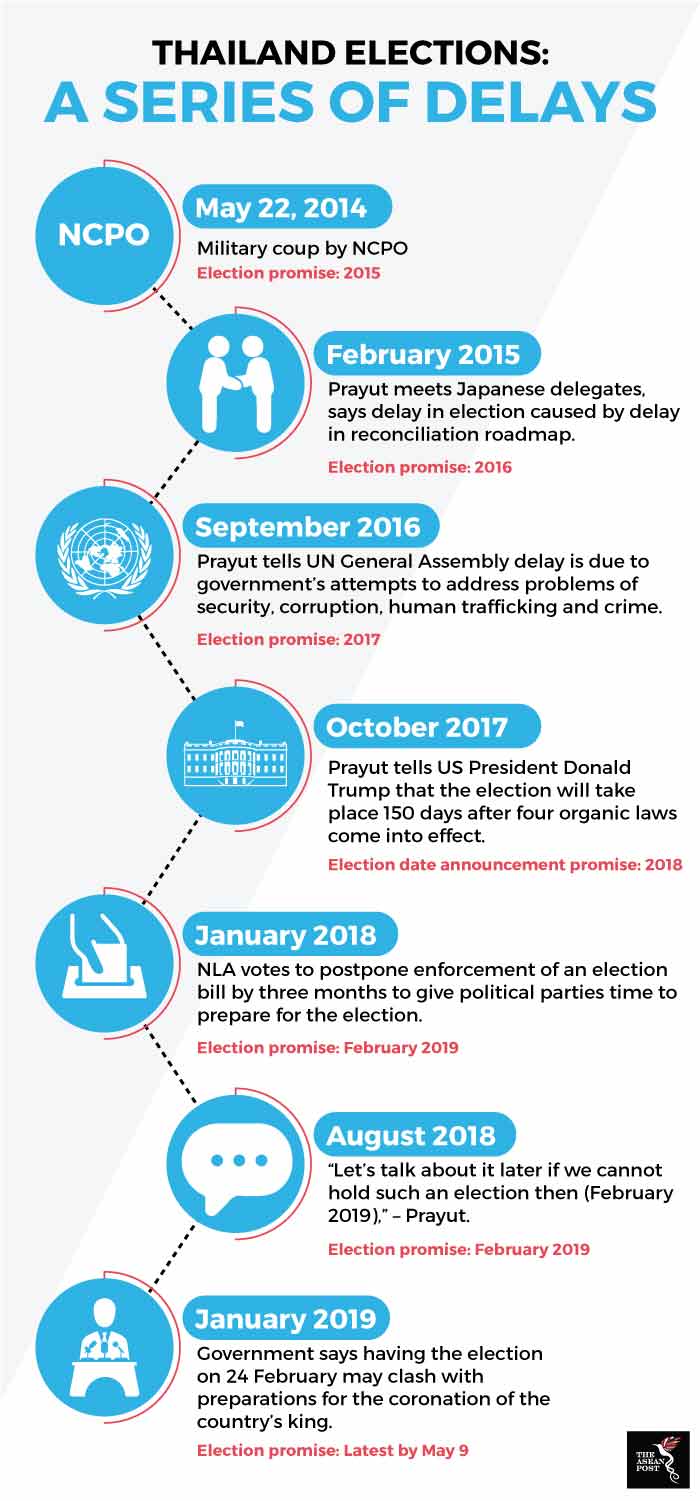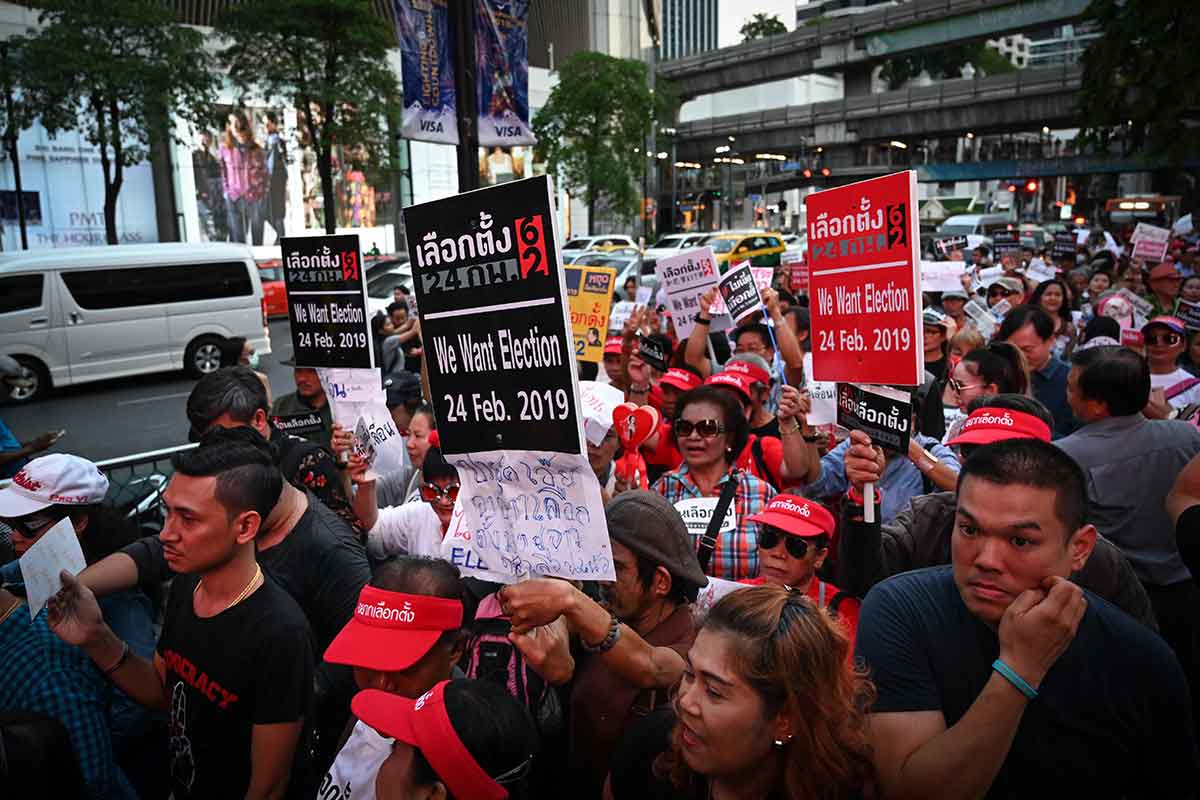And so, the saga continues. Thailand’s election is probably going to be delayed – again.
Unfortunately, it comes as no surprise to Thais and observers alike. Previously slated for 24 February, but just three days into 2019, Thailand’s government has come out and said that holding elections on that date may clash with preparations for the coronation of King Maha Vajiralongkorn. It further added that it will be up to the Election Commission (EC) to decide whether the timing of the election is appropriate.
The announcement was – again, unsurprisingly – met with backlash from Thais who took to the streets on Tuesday. Local media reported that about 200 protesters staged a rare demonstration in the military-ruled country, demanding that there be no further election delays.
The peaceful protesters marched and chanted with placards in hand on a busy intersection in Bangkok's commercial district. Not much blame can be put on angry Thais who have been promised of an election date time and time again only to have those promises broken.
Delay after delay
Shortly after taking power, Prime Minister Prayut Chan-o-cha launched a year-long road map aimed at reconciling the people of Thailand. The initial delay, which occurred in February 2015 while meeting with delegates in Japan, was supposedly caused because of an incomplete reform roadmap.
"The second phase of the national reform roadmap is on its way but takes time. I assure you that I will do my best to develop bilateral and regional relations,” the Thai prime minister had reportedly said, promising that the election would take place the following year.
Then, in September 2016, Prayut told the United Nations (UN) General Assembly that elections would be held in 2017. He explained that the government was attempting to nip problems of security, corruption, human trafficking and crime, in the bud. "We believe addressing such problems at the roots can serve as a strong foundation for a sustainable democracy and good governance," he said.
In October 2017, Prayut told United States (US) President Donald Trump during a visit to the White House that a firm date for the election would be announced in 2018. He said that a general election will take place within 150 days after the four organic laws that will facilitate the election came into effect.
Then, in August last year, Prayut dropped another hint that the country’s long-awaited election will be delayed yet again. Despite previously promising that elections will be held in February 2019, Prayut recently said that a further delay is possible.
“We still confirm that the general election will be held in February 2019. Let’s talk about it later if we cannot hold such an election then, and now there isn’t any factor to make us hold the election sooner,” he told reporters after a cabinet meeting in the southern province of Chumphon.

Source: Various sources
Another promise
Local media reported the government as insisting that the general election will take place within the 150-day deadline, or by 9 May, while the Election Commission (EC) has reaffirmed its stance to set the poll date only after the royal decree takes effect.
Deputy Prime Minister Prawit Wongsuwon even rejected suggestions that further delays may occur, saying this is not possible because, under the constitution, the election must be held within 150 days of the organic law governing the election of members of Parliament (MPs) taking effect, which took place on 11 December last year.
However, EC president Ittiporn Boonpracong, said there was no election date model and that the commission was waiting for the royal decree. While he agreed that the constitution requires the EC to complete the election within 150 days of 11 December, the term “complete” does not specify “ballot casts” or “results announced”.
No matter how it’s cut, Thailand’s democracy will remain in limbo until the clearest sign of an election is seen. As has been shown time and time again, there is no guarantee that floating promises of election dates will not be broken. Meanwhile, it goes without saying that many Thai voters are getting restless and this growing restlessness could affect Prayut’s popularity. Prayut, who has shown that he seeks legitimacy as an elected official, is certainly aware of that.
Related articles:
Thailand’s election could get delayed, again
